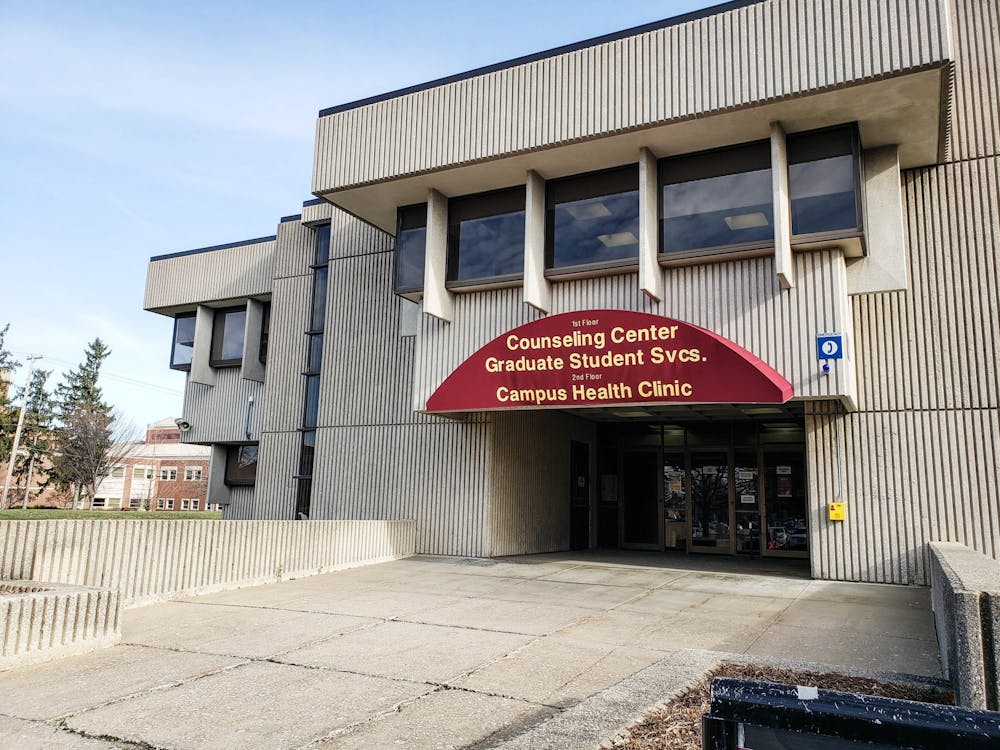Mental health investment boosts counseling center
As the Central Michigan University Counseling Center reaches its highest number of counselors since 2019, the Division of Student affairs is preparing to conduct its next Mental Health First Aid (MHFA) training session for staff in mid-September.
This summer, the Counseling Center added a new position, and filled one that was open — bringing it up to 11 full-time counselors and one part-time.
“I’m really excited about what we have going on, it’s always a pleasant surprise when you far exceed your own expectations,” Interim Vice President of Student Affairs Stan Shingles said.
The MHFA, along with investments in the counseling center, were part of the goals he introduced for the Division of Student Affairs (DSA) back in April.
“We still have things to work on; some of these things never end,” he said.
“The training is really focused on awareness and attention,” Shingles said. “What I’m most excited about is how our staff is engaged.”
The training was paid for by a grant from the Substance Abuse and Mental Health Services Administration (SAMHSA). Melissa Hutchinson, executive director of the Counseling Center and MHFA instructor, said the grant gives the school $100,000 every year for three years to continue annual staff training.
Shingles said a big part of the training is getting people who are struggling to the resources they need– which is not always counseling.
“This doesn’t replace counselors… and the necessary resources might not be counseling,” he said. For example, someone experiencing anxiety around money might benefit more from visiting the financial aid office and developing a plan than they would from talk therapy.
This comes at the same time as a nationwide shortage of mental health professionals.
According to a study by the Bureau of Health Workforce (BHW), more than half (169 million) of the U.S. population lives in a Mental Health Professional Shortage Area as of Dec. 2023.
The study also projects substantial shortages of addiction counselors, marriage and family therapists, mental health counselors, psychologists and psychiatrists by 2036.
Hutchinson said hiring has been a challenge in the past, because for every licensed mental health professional, there are more than a few jobs for them to choose from.
A pay increase counselors received as part of the budget approved by the Board of Trustees in June could make hiring easier, though. Shingles said the university Human Resources office conducted an assessment to make sure counselors were being paid equitably to other colleges and universities.
“Our salaries now are a little more competitive, compared to other institutions that are hiring,” Hutchinson said.
The proposal to conduct the assessment came at the same time as the proposal, supported by President Bob Davies, to hire another counselor.
“I’m grateful for President Davies for his support, and for leadership from Stan Shingles and (Assistant Vice President of Student Affairs) Erica Johnson,” Hutchinson said.
Funding for an after-hours crisis call service was also approved by the Board of Trustees. The service was available last year, paid for by grant funding, but it’s now part of the 2024-25 budget.
Hutchinson said that with the service, calling the counseling center after-hours will connect the caller to an operator capable of assessing for danger and talking someone through a crisis. Last year, the service was primarily used by residence life staff for assistance resolving problems.
“Now that we have this service, people who live off campus can have better access,” Hutchinson said.




